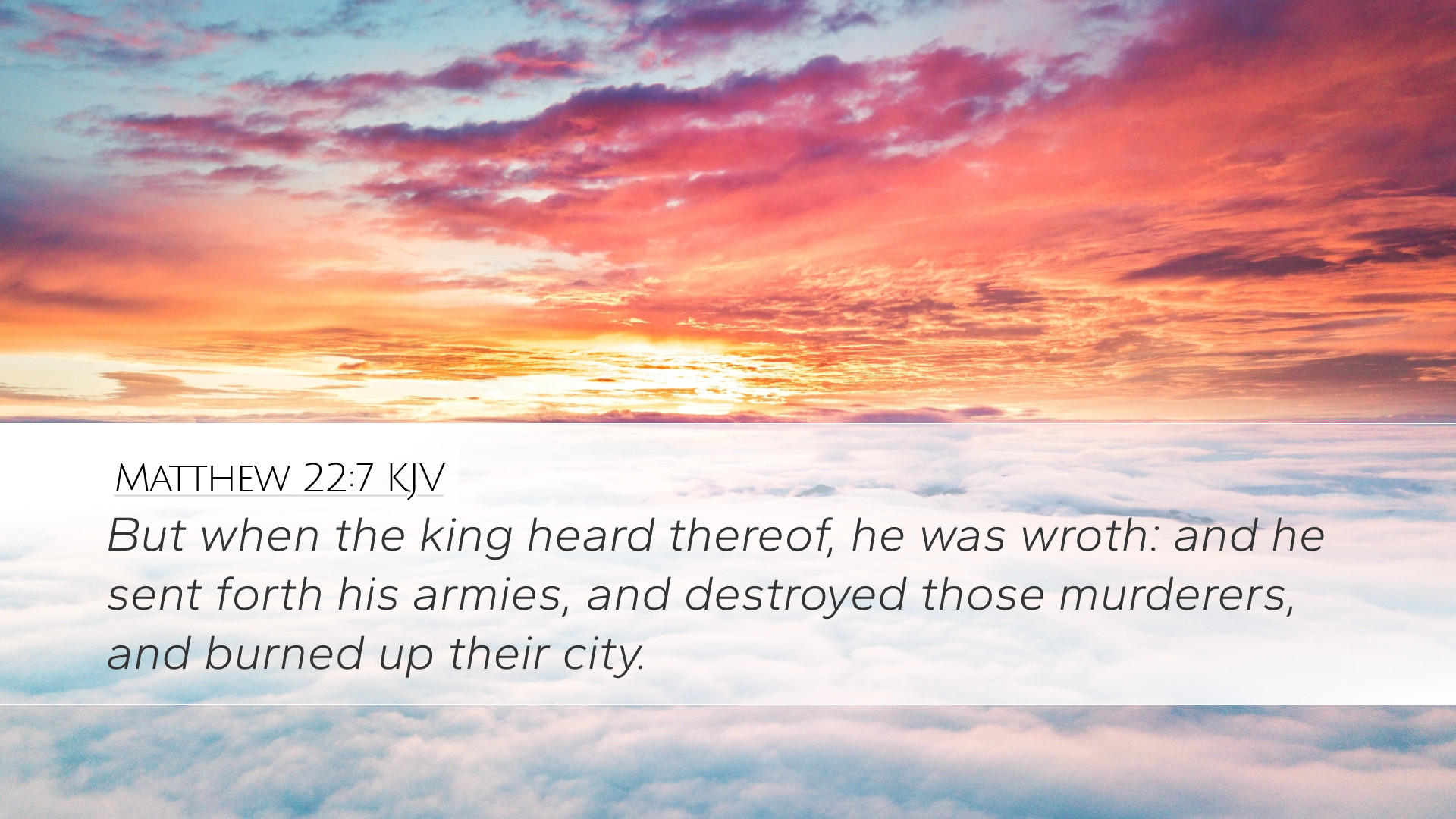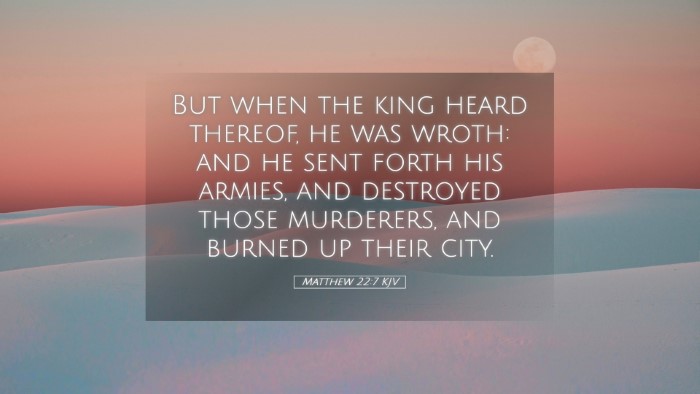Commentary on Matthew 22:7
Verse Context: Matthew 22:7 states, "But when the king heard thereof, he was wroth: and he sent forth his armies, and destroyed those murderers, and burned up their city." This verse is part of the Parable of the Wedding Feast, which highlights God’s invitation to His kingdom and the rejection it often receives.
Overview and Theological Significance
This verse plays a critical role in illustrating the response of God to rejection. The king, representing God, reacts to the insolence and disdain shown by those invited to His feast. The anger of the king signifies God’s righteous judgment against sin and the grave consequences of rejecting His invitation to salvation.
Interpretation of the King’s Wrath
Matthew Henry's Commentary: According to Matthew Henry, the king’s wrath is a picture of divine judgment. Henry notes that the refusal of the invited guests symbolizes the Jewish nation’s rejection of Christ, leading to their destruction. God’s wrath is not arbitrary but is a just response to the rebellion against His authority.
Albert Barnes adds: The fierce reaction of the king signifies the seriousness of ignoring God’s call. The invitation to the feast is open to all, but rejecting that invites wrath. Barnes emphasizes that the king's decision to send armies reflects the impending judgment that falls upon those who persist in their rebellion against God.
Adam Clarke emphasizes: The burning of the city represents the desolation that comes to those who reject divine grace. Clarke connects this to the historical destruction of Jerusalem, illustrating that such events are not without purpose, but rather serve as a divine warning to those who ignore God’s message.
The Soldiers and the City
In this parable, the king’s soldiers represent agents of divine judgment. This concept is rich with theological implications, as it shows that God can and will utilize various means to execute His justice. The destruction of the city symbolizes the complete devastation that occurs when people turn their backs on God.
Matthew Henry observes: The choice of armies to enact judgment suggests that God often employs means and instruments to carry out His plan. This echoes in biblical texts where God’s judgment is executed through various nations and powers.
Lessons for Believers
This verse serves as a sobering reminder of the consequences of rejection. It calls upon believers to evaluate their response to God’s invitations and to recognize the seriousness of their actions.
- Awareness of Accountability: Just as the invited guests are held accountable for their refusal, believers today must consider how they respond to God’s call in their lives.
- God's Invitation is Serious: The invitation to the wedding feast is not to be taken lightly. The invitation to partake in God’s kingdom comes with responsibility and should be embraced wholeheartedly.
- Judgment is Real: Just as the king acted in righteous anger, believers must understand that God’s judgment is a serious reality for those who reject His grace.
Conclusion
Ultimately, Matthew 22:7 is a harsh but necessary reminder of the consequences of sin and the joy of accepting God’s invitation. Both Matthew Henry, Albert Barnes, and Adam Clarke provide profound insights into this verse, contrasting the invitation of grace with the severe implications of rejection. Believers are encouraged to respond to God’s invitation with sincerity, lest they, like those in the parable, face the devastating consequences of their choices.


